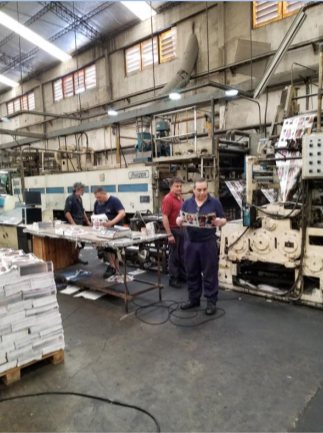
There are over 20,000 cooperatives in Argentina, and the most colorful ones are the 300+ that are known as “recovered businesses.” These are companies that went bankrupt and closed, but the workers re-entered the buildings and re-opened the businesses, now converted to worker co-ops. They’re found largely, though not exclusively, in Buenos Aires.
Mike Krause of Isthmus Engineering gave a presentation Monday night on his visits to some of these co-ops. One of his main points was that the government of Argentina dislikes co-ops in general and recovered business in particular… because they work. As the Argentine economy goes through rather predictable boom-and-bust cycles on a ten-year schedule, co-ops are one of the main ways people survive the bust years. But working-class people surviving — and presenting a viable alternative to neoliberal policies — does not serve the interests of the wealthy or the current right-wing government.
As Mike explained, this means that co-ops have to seek support elsewhere. The first place they find it is in each other. Co-ops don’t see each other as competitors, even when they provide the same goods or services. On the contrary, they join together into second and even third-tier federations to purchase in volume, to lobby the government (or hold street protests against it), to improve their internal processes, and even to find ecologically responsible ways to dispose of their waste products. Additionally, co-ops go out of their way to include each other in their supply chains.
Read the rest at Madison Cooperative Development Coalition
Go to the GEO front page

Add new comment